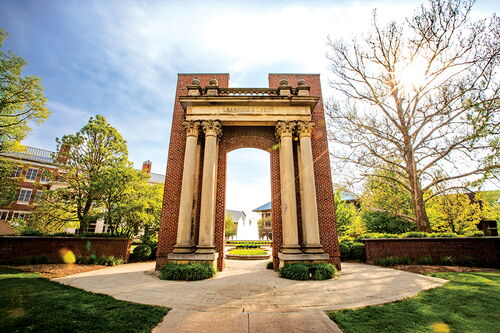Jeffrey Moore receives Kwolek Award

Jeffrey Moore, a Stanley O. Ikenberry Endowed Chair, professor of chemistry, and director of the Beckman Institute for Advanced Science and Technology, has been named the 2018 recipient of the Stephanie L. Kwolek Award for exceptional contributions to the field of materials chemistry. He is also a professor of materials science and engineering at Illinois
The award, established in 2008 by the Royal Society of Chemistry, is named in honor of the late Stephanie Louise Kwolek, the inventor of Kevlar, a synthetic fiber used as a reinforcing agent in products and protective gear such as helmets and vests. The award is given annually to a scientist living outside of the United Kingdom.
“In the early 1990’s we researched high-strength aramid fibers. Since then, Stephanie Kwolek has been one of my heroes of science,” Moore said. “Receiving this award is humbling as well as a tremendous honor, made possible by the scientific achievements of students and postdocs in the group, as well as the colleagues with whom we have collaborated.”
Moore is a member of the National Academy of Sciences and a fellow of the American Academy of Arts & Sciences, the American Association for the Advancement of Science, The Royal Society of Chemistry, and the American Chemical Society. He was recently named a Stanley O. Ikenberry Endowed Chair, one of the most distinguished honors on campus.
An alumnus of the University of Illinois, Moore went on to serve as faculty at the University of Michigan before returning to Illinois as a faculty member in 1993. He has received wide recognition throughout his career, as he has published more than 400 articles covering topics from technology in the classroom to self-healing polymers, mechanoresponsive materials, and shape-persistent macrocycles. He has also received the Campus Award for Excellence in Undergraduate Teaching and has been recognized as a “Faculty Ranked Excellent by their Students.”
Motivated by the need for materials that are safe and long-lasting, Moore’s research group integrates ideas from physical organic chemistry and engineering with molecular design and polymer synthesis to construct new functional materials. Experiments are designed to understand the fundamental science of mechanochemical transduction, which in turn aids in the design of polymers that produce chemical signals or undergo chemical reactions following mechanical activation.Specific examples include materials that heal themselves, warn of high stress, or repair electrical circuits.
Research in Moore’s group is highly collaborative, including interactions with professors Nancy Sottos, in the Department of Materials Science and Engineering, and Scott White, in the Department of Aerospace Engineering, through which the researchers demonstrated plastics that not only heal after damage but regenerate via reactive fluids pumping through vascular channels within the material.








